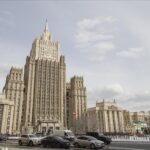Global Courant 2023-04-25 13:43:19
The South African rand tumbled against a slightly stronger dollar this Tuesday as South African Reserve Bank (SARB) credit data fell for a third straight month.
Reuters reported that the central bank’s February lending indicator is a leading indicator of the business cycle, falling 0.7% month on month.
The indicator collects data on car sales, business confidence, money supply and other factors to gauge the outlook for the country.
In addition, the dollar index, which measures the greenback against six rivals, rose about 0.1%, putting pressure on the rand.
The rand remains volatile and dependent on the vagaries of the global economy, especially the decisions of the US Federal Reserve.
According to Reuters, global investor sentiment has been cautious in a busy week for corporate earnings and economic data – battling the risky edge.
Annabel Bishop, Investec’s chief economist, said markets remain concerned that the US will slide into recession in the second half of this year as the cycle of rate hikes goes too far.
“With at least a two- to three-quarters lag between interest rate changes and the impact on the economy, US hikes are anchoring recession concerns,” Bishop said.
Bishop reported that last week’s US Purchasing Managers’ Index (PMI) showed stronger demand supported sharper growth in April, but also renewed inflation momentum.
“Production rose at its strongest pace in nearly a year, as stronger demand, improving supply and stronger increases in new orders supported the expansion. … The production increase was the third in as many months.”
“In the US, core CPI inflation (CPI excluding food and energy) rose to 5.6% y/y in the latest printing, up from 5.5% y/y, stubbornly high, and the PMI data raised some concerns that it would further support the Fed. hawkishness. The core PCE deflator is coming out this week,” Bishop said.
Rand affected by US uncertainty
Over the past year, South Africa’s weak rand has been caused by heightened uncertainty and downward revisions to the global economic outlook.
Financial markets are pricing in an almost 100% chance of a 25 basis point hike in the US next week. At the same time, expectations of a recession are much lower, at 44%, according to NABE (National Association of Business Economics), Bishop said. The uncertainty is great.
Despite this, Bishop said that even if uncertainty is high, another sharp depreciation of the rand is not what is expected from financial models.
“With global risks, and in particular a significant chance of a recession in the US (though probably not completely), the rand remains at risk of further weakening, but is not expected to lose another R4/USD in the next 12 months .”
US recession
According to the National Association of Business Economics (NABE), the probability of a U.S. recession has decreased from 54% in January to 44%.
However, the Forbes recession tracker shows several data points drifting into neutral territory, which could indicate a potential recession. Factors such as GDP growth, inflation rates and unemployment rates play a vital role in determining whether a recession will occur.
While the US business cycle is expected to slow down in the second half of 2023, it is uncertain whether this will lead to an NBER-defined recession. The perception of risk in global financial markets will also affect the situation, Bishop said.
The rand is currently traded at:
R18.23/$ R20.12/€ R22.72/£
Read: A glimmer of hope for South Africa – but it may be short-lived








